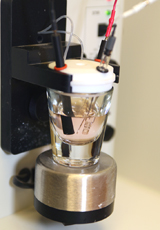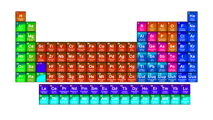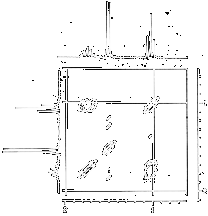Summary
 Instrumental methods of chemical analysis were introduced in previous courses, starting in General Chemistry. This course expands on a few specific methods, delving deeper into the theory, applications, and operation of the instrumentation. Close familiarity with the following topics is necessary to excel in this course: chemical equilibrium, separation science (e.g., HPLC, GC), spectroscopy (UV-visible absorption and emission, FTIR, NMR), basic mass spectrometry, electricity and magnetism, and optics. Laboratory investigations are designed to solve problems suited to each instrumental method introduced in the laboratory or lecture. Some aspects troubleshooting instrument failure are introduced. Every student should gain the competence to follow standard procedures and design their own procedure, operate the instruments in a safe and appropriate manner, collect suitable data, evaluate the reliability of the data collected, and report the results in an appropriate form as would be required of any competent laboratory technician. The course is divided into 4 modules: electrochemistry (potentiometry, voltammetry), structural techniques (MS, NMR, FTIR), and techniques not covered in earlier courses. In addition to lecture, readings, and laboratory work, an independent laboratory project is required.
Instrumental methods of chemical analysis were introduced in previous courses, starting in General Chemistry. This course expands on a few specific methods, delving deeper into the theory, applications, and operation of the instrumentation. Close familiarity with the following topics is necessary to excel in this course: chemical equilibrium, separation science (e.g., HPLC, GC), spectroscopy (UV-visible absorption and emission, FTIR, NMR), basic mass spectrometry, electricity and magnetism, and optics. Laboratory investigations are designed to solve problems suited to each instrumental method introduced in the laboratory or lecture. Some aspects troubleshooting instrument failure are introduced. Every student should gain the competence to follow standard procedures and design their own procedure, operate the instruments in a safe and appropriate manner, collect suitable data, evaluate the reliability of the data collected, and report the results in an appropriate form as would be required of any competent laboratory technician. The course is divided into 4 modules: electrochemistry (potentiometry, voltammetry), structural techniques (MS, NMR, FTIR), and techniques not covered in earlier courses. In addition to lecture, readings, and laboratory work, an independent laboratory project is required.
This course is an extension of skills learned in earlier courses, such as General Chemistry, Quantitative Chemistry, and Instrumental Analysis.and provides additional framework for further studies in chemical analysis and chemical instrumentation.
Lecture Resources
Laboratory Resources

